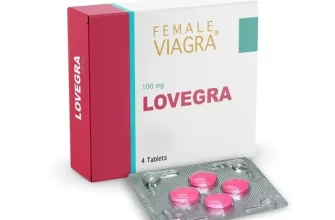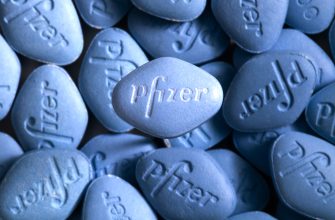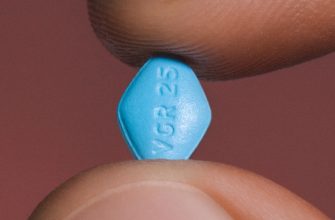Viagra is not classified as a nitrate. It contains the active ingredient sildenafil, which works by inhibiting an enzyme called phosphodiesterase type 5 (PDE5). This leads to increased blood flow to the penis during arousal, making it effective for treating erectile dysfunction.
Nitrates, on the other hand, are a different class of medications typically used to treat chest pain or angina by widening blood vessels. Combining nitrates and Viagra can be dangerous, as both can lower blood pressure significantly. If you are taking nitrates, it is crucial to avoid using Viagra.
If you are considering Viagra for erectile dysfunction, consult a healthcare provider to discuss your medical history and any medications you may be taking. This ensures safe and effective treatment while preventing potential interactions.
- Is Viagra a Nitrate?
- Potential Interactions with Nitrates
- Consultation is Key
- Understanding Viagra’s Composition
- How Viagra Works in the Body
- Mechanism of Action
- Additional Considerations
- Difference Between Viagra and Nitrates
- Mechanism of Action
- Use and Precautions
- Common Misconceptions About Viagra
- Myth: Viagra Provides Instant Results
- Myth: Viagra Is Only for Older Men
- Potential Interactions with Nitrates
- Recommendations
- Signs of Interaction
- Guidelines for Using Viagra Safely
- Dosage Recommendations
- Side Effects and Precautions
- Consulting with Healthcare Professionals
- Alternatives to Viagra for Erectile Dysfunction
Is Viagra a Nitrate?
No, Viagra is not a nitrate. Viagra contains the active ingredient sildenafil, which belongs to a class of medications known as phosphodiesterase type 5 inhibitors (PDE5 inhibitors). It specifically targets the enzyme PDE5, enhancing blood flow to the penis during sexual stimulation.
Unlike nitrates, which relax and widen blood vessels, sildenafil works by inhibiting the breakdown of cyclic GMP, a substance that relaxes smooth muscle and increases blood flow. This mechanism makes Viagra effective in treating erectile dysfunction but does not classify it as a nitrate.
Potential Interactions with Nitrates
It’s crucial to note that combining Viagra with nitrates can lead to significant health risks. Both medications lower blood pressure, and their concurrent use may cause dangerously low blood pressure levels. Patients taking nitrates for heart conditions should avoid using Viagra without consulting a healthcare provider.
Consultation is Key
Always discuss medications with a healthcare professional. Understand the implications of using sildenafil, especially if you are on other treatment regimens. A patient’s safety and well-being must take precedence when considering any medication interactions.
Understanding Viagra’s Composition
Viagra contains the active ingredient sildenafil citrate. This compound functions as a phosphodiesterase type 5 (PDE5) inhibitor, which helps increase blood flow to the penis during sexual arousal. It does not contain nitrates, making it distinct from medications like nitroglycerin used for heart conditions.
Sildenafil works by relaxing blood vessels, allowing more blood to flow into the erectile tissue. This mechanism aids in achieving and maintaining an erection only when there is sexual stimulation. It’s essential to understand that Viagra does not increase sexual desire; its effect is purely physiological.
A typical starting dose of Viagra is 50 mg, taken approximately one hour before sexual activity, and can be adjusted based on effectiveness and tolerance. Familiarizing yourself with potential side effects is also crucial. Minor side effects may include headaches, flushing, or upset stomach, while serious reactions may necessitate immediate medical attention.
The presence of sildenafil citrate differentiates Viagra from nitrate medications. Combining these substances can lead to dangerous drops in blood pressure. Therefore, consulting a healthcare provider before using Viagra is important, especially if you are currently taking nitrates.
Understanding the composition of Viagra aids in its safe and effective use, allowing users to manage their erectile dysfunction with informed decisions.
How Viagra Works in the Body
Viagra enhances blood flow to the penis, facilitating erections in response to sexual arousal. It does this primarily through the inhibition of the enzyme phosphodiesterase type 5 (PDE5). By blocking PDE5, Viagra increases levels of cyclic guanosine monophosphate (cGMP), a molecule that relaxes smooth muscle and dilates blood vessels in the penis.
Mechanism of Action
- When sexual stimulation occurs, the body releases nitric oxide (NO), which is crucial for the production of cGMP.
- Viagra comes into play by preventing the breakdown of cGMP, allowing its levels to rise and causing prolonged vasodilation.
- This process leads to increased blood flow, resulting in an erection that is more firm and sustained.
Additional Considerations
Viagra does not directly cause an erection; it requires sexual arousal as a trigger. Timing is important, as it is recommended to take Viagra about 30 to 60 minutes before planned sexual activity. The effects can last for several hours, offering flexibility in sexual encounters.
Always consult with a healthcare provider before using Viagra. They can provide guidance on appropriate dosage and evaluate any potential interactions with other medications or underlying health issues. Adhering to medical advice ensures safe usage and maximizes effectiveness.
Difference Between Viagra and Nitrates
Viagra, known scientifically as sildenafil, is not a nitrate. It belongs to a class of medications called phosphodiesterase type 5 (PDE5) inhibitors, specifically designed to treat erectile dysfunction by enhancing blood flow to the penis. Nitrates, on the other hand, are vasodilators commonly used to manage conditions like angina and heart failure by widening blood vessels.
Mechanism of Action
Viagra works by inhibiting the PDE5 enzyme, resulting in increased levels of cyclic guanosine monophosphate (cGMP). This leads to relaxation of smooth muscle in the blood vessels, allowing for improved blood flow. Nitrates release nitric oxide, a potent vasodilator, which results in immediate relaxation of blood vessel walls, thus lowering blood pressure and improving oxygen delivery to the heart.
Use and Precautions
Patients should avoid using Viagra in combination with nitrates due to the risk of a significant drop in blood pressure. This combination can cause dizziness, fainting, and in severe cases, it can be life-threatening. It’s crucial to discuss all medications with a healthcare provider. Timing is also vital; while Viagra is taken as needed before sexual activity, nitrates are often prescribed for regular use, depending on the patient’s condition.
| Feature | Viagra (Sildenafil) | Nitrates |
|---|---|---|
| Class | PDE5 Inhibitor | Vasodilator |
| Primary Use | Erectile Dysfunction | Angina, Heart Failure |
| Mechanism | Increases cGMP | Releases Nitric Oxide |
| Blood Pressure Effect | May lower blood pressure | Significantly lowers blood pressure |
| Combined Use Risk | Contraindicated | Contraindicated |
Common Misconceptions About Viagra
Many believe that Viagra is a nitrate. This is incorrect. Viagra, or sildenafil, is a phosphodiesterase type 5 (PDE5) inhibitor. It enhances blood flow to the penis during sexual stimulation, helping to achieve and maintain an erection. Understanding this difference is key to discussing Viagra’s role in erectile dysfunction.
Myth: Viagra Provides Instant Results
Some expect Viagra to work immediately. However, it requires sexual arousal for optimal results. Taking Viagra will not produce an erection without stimulation. It’s important to plan accordingly and allow time for the medication to take effect, typically within 30 to 60 minutes.
Myth: Viagra Is Only for Older Men
It’s a common belief that Viagra is exclusively for older men. In reality, men of various ages may experience erectile dysfunction due to factors such as stress, anxiety, or medical conditions. Viagra can be a suitable option for younger men facing these issues, underscoring the importance of consulting a healthcare provider.
Understanding these misconceptions helps in making informed decisions about using Viagra. Always consult a healthcare professional for personalized advice and treatment options.
Potential Interactions with Nitrates
Viagra and nitrates interact negatively, which can lead to serious health risks. Combining these substances can cause severe drops in blood pressure, leading to dizziness, fainting, or even more critical complications.
Recommendations
- Avoid taking Viagra if you are currently on nitrate medications such as nitroglycerin or isosorbide dinitrate.
- Consult a healthcare provider before starting Viagra if you have a history of nitrate use.
- Be aware that some recreational drugs, like amyl nitrite, also act as nitrates and should be avoided with Viagra.
Signs of Interaction
Monitor for symptoms like lightheadedness, headache, or a racing heartbeat after taking these medications together. If experienced, seek medical attention immediately.
Prioritize your health by understanding these interactions and consult with professionals for personalized advice.
Guidelines for Using Viagra Safely
Always consult with a healthcare provider before starting Viagra. Assess any pre-existing conditions and medications to prevent adverse reactions. Make sure your doctor is aware of all drugs you’re taking, especially nitrates, as combining them with Viagra can lead to serious health risks.
Dosage Recommendations
Start with the lowest recommended dose. For most men, a dose of 50 mg taken about one hour before sexual activity is effective. Your doctor may adjust this dose based on your response and any side effects. Do not exceed the maximum recommended dosage of 100 mg per day.
Side Effects and Precautions
Be aware of potential side effects, including headaches, flushing, or upset stomach. If you experience severe dizziness, chest pain, or an erection lasting longer than four hours, seek medical assistance immediately. Stay hydrated and avoid excessive alcohol, which can increase the risk of side effects.
Monitor your health regularly. Schedule follow-up appointments with your healthcare provider to evaluate the effectiveness and safety of Viagra in your treatment plan. Personalize usage based on your overall health and well-being for optimal results.
Consulting with Healthcare Professionals
Prioritize scheduling a discussion with your healthcare provider before considering Viagra. Understanding your medical history and current medications is vital, as certain drugs can interact negatively with Viagra. Your doctor will explain how nitrates, commonly prescribed for heart conditions, can lead to severe side effects if combined with Viagra.
Be transparent about all medications and supplements you are taking. This ensures that your healthcare professional can provide personalized advice tailored to your needs. They will assess your overall health and discuss potential risks associated with using Viagra, especially if you have underlying health conditions.
Inquire about alternative treatments if Viagra isn’t suitable for you. Your healthcare provider may suggest different medications or therapies that can effectively address your concerns without compromising your health.
Regular check-ups and open communication with your doctor enhance safety and efficacy when using any medication. Ask about how to optimize your treatment plan for the best outcomes. Always keep the dialogue going; this approach fosters a healthy relationship with your healthcare professional.
Alternatives to Viagra for Erectile Dysfunction
Consider using oral medications like tadalafil (Cialis) or vardenafil (Levitra). Both offer similar benefits to Viagra, helping increase blood flow and achieve an erection. Tadalafil stands out for its longer duration, allowing you more spontaneity.
Another option is using vacuum erection devices (VEDs), which create a vacuum to draw blood into the penis. This approach is non-invasive and effective for many men, especially those who prefer to avoid medications.
Explore the possibility of injections, such as alprostadil, directly into the penis. This method provides quick results and can be particularly beneficial if oral medications are not effective.
Lifestyle changes can also play a significant role. Regular exercise, a balanced diet, and maintaining a healthy weight may improve erectile function. Reducing alcohol consumption and quitting smoking show positive effects as well.
Consider discussing with a doctor about hormone therapy if testosterone levels are low. Addressing hormone imbalances can have a direct impact on sexual health.
Psycho-sexual therapy or counseling can assist those experiencing psychological barriers to intimacy and erections. Professionals can provide guidance and techniques to overcome these challenges.
Lastly, certain supplements like L-arginine or ginseng have been reported to enhance erectile function in some men. Consult your doctor before starting any supplements to ensure safety and effectiveness.








